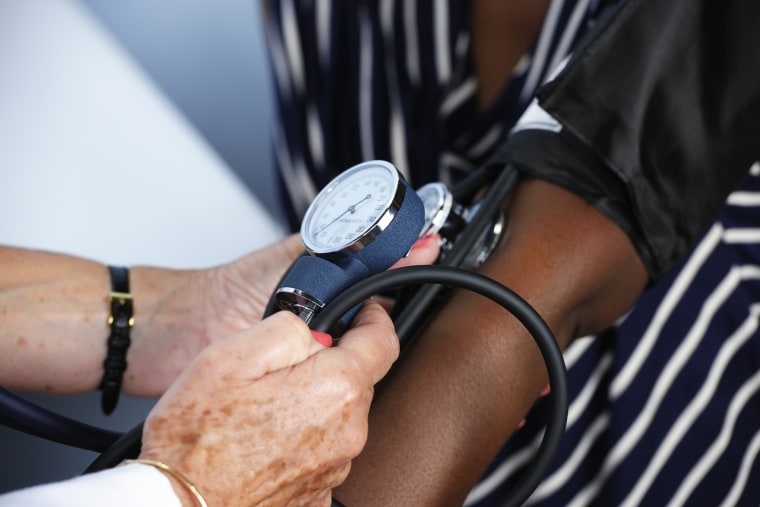Nearly one third of American voters fear they won’t be able to pay for health care in the coming year, according to an NBC News/Commonwealth Fund survey released Thursday.
The survey found that 31 percent of respondents were worried about being able to afford their health insurance in the next 12 months, 29 percent feared they wouldn’t have enough money to pay for out-of-pocket costs for prescription drugs, and 32 percent worried about being able to afford other out-of-pocket costs.
Nearly 80 percent of likely voters said they thought reducing health care costs should be a high priority for the next president.
The poll was conducted between Jan. 28 and Feb. 16 and included a nationally representative sample of 2,303 adults. The focus of the analysis included 1,594 likely voters.
The poll results underscore the overall concern people have about affording health care.
“The poll results underscore the overall concern people have about affording health care,” said Sara Collins, vice president for health care coverage and access at the Commonwealth Fund.
In fact, the findings may be an underestimate of the level of concern among Americans, because people were asked specifically about the next 12 months rather than overall worry, she said.
Problems paying bills
One in 5 likely voters said they had problems paying or were unable to pay their medical bills over the last two years. Among them, to pay their medical bills:
- 46 percent said they had dipped into savings or retirement funds
- 46 percent said they had borrowed money from family or friends
- 34 percent said they had taken on credit card debt
- 26 percent said they had sold jewelry or furniture
- 7 percent said they had raised money through crowd sourcing
“This shows that incomes haven’t really kept pace with health insurance costs,” Collins said. “When middle income people are stuck with large bills, they are resorting to extreme measures to cover those bills.”
Delaying care
Another worrisome issue, Collins said, is that more than 1 in five (22 percent) people said they or a family member had a health problem worsen in the past 12 months because they had delayed getting health care or medications due to the cost.
That’s what happened to Lisa Wilson, 55, of Iowa. When she lost her job in 2015, she lost her health insurance, which meant she also missed her annual mammogram because she couldn’t afford to pay for it. Even though she found another job eight months later, the lost time cost her dearly: Her next mammogram turned up an advanced cancer.
“It was shocking,” Wilson told NBC News. “They told me it was pretty aggressive and I needed to seek care.”
Wilson is currently battling that stage 4 cancer, which has spread to her bones and her liver. And her insurance woes haven’t ended. Her current insurance company has denied claims for the PET scans Wilson needs to monitor the effectiveness of her treatments — after initially saying it would pay. In the hole for $15,000, she had to dip into her 401K to pay her medical bills.
“It’s bad enough to have to fight cancer and then to have to turn around and fight the insurance company as well, that takes a lot of time and effort that could be spent focusing on the care,” she said.
Surprise medical bills
The survey also found that many people were worried about the unpredictability of what may or may not be covered by their insurance. More than a quarter (28 percent) of likely voters worry they will receive an unexpected or surprise medical bill over the next year.
While a majority of likely voters think the next president should make reducing health care costs a top priority, there was disagreement, along party lines, as to who would do this best.
More than half of likely voters (54 percent) said they were very or somewhat confident that a Democratic president would work to make health care more affordable, as compared to the 42 percent who said they were very or somewhat confident that President Donald Trump, if re-elected, would make health care more affordable.
Among Democrats, 85 percent had confidence that a Democratic president would make health care more affordable; similarly, 85 percent of Republicans had confidence that Trump could do the same.
The NBC News/Commonwealth Fund poll was conducted Jan. 28 - Feb. 16 on 2,303 U.S. adults and its overall margin of error is plus-minus 2.4 percentage points.
Follow NBC HEALTH on Twitter & Facebook.
